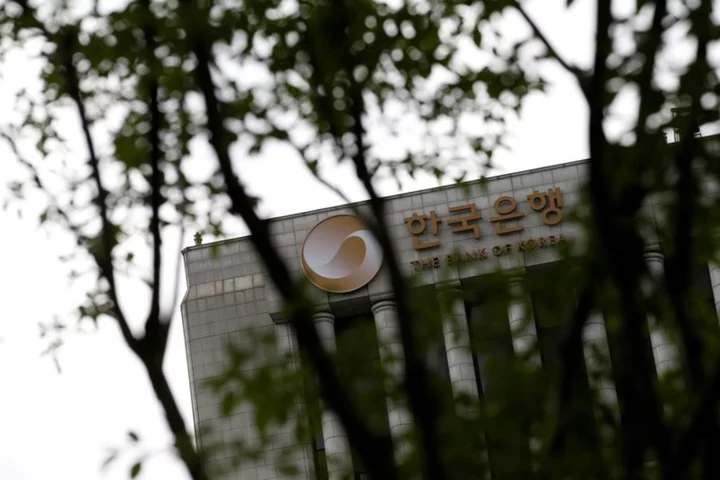SEOUL South Korea's central bank warned on Thursday that an early shift in its monetary policy stance could pile more pressure on the local currency, a risk that needs to be properly addressed.
Highly uncertain inflation, accumulated financial imbalance, and credit risks related to the real estate market are among issues that required to be considered before changes to the monetary policy, the central bank said.
"Additional rate hikes by the U.S. Federal Reserve or an early shift in the domestic policy stance may increase downward pressure on the local currency," the Bank of Korea (BOK) said in its quarterly monetary policy report submitted to parliament.
The BOK held interest rates steady for a third straight meeting last month, after 300-basis-point increases in 1-1/2 years through January, but also signalled it may not be done tightening.
The current policy interest rate of 3.50%, the highest since late 2008, is at a restrictive level, slightly above the neutral range, the Bank of Korea said.
However, the central bank said the degree of restrictiveness has lessened significantly this year with a sharp fall of interest rates in local financial markets.
Volatility in the won has risen above its long-term average since early last year following the Fed's interest rate hikes and exceeded that of most other currencies since August by a significant degree, the report said.
Domestic factors such as trade deficits have recently fuelled the increased volatility, it said.
The won has weakened by 3% against the U.S. dollar so far this year, following a 6% drop in 2022, when the South Korean currency once touched its lowest level in 14 years. That compares with the U.S. Dollar index's gains of 0.4% and 8.2% so far this year and in 2022, respectively.
The BOK said uncertainty was still high over how fast inflation would ease, citing core prices that were stickier in downward direction and delayed public utility price hikes.
The real estate market remains overvalued, the central bank said, adding that a declining trend in house prices softened this year, with a rebound in mortgage loans on loosened regulations.
(Reporting by Jihoon Lee; Editing by Sriraj Kalluvila)

